More Top 10 lists from Shelf
Awareness folk... (see here and here for more).
Top 10 Books of 2010:
Shannon McKenna Schmidt, contributing writer
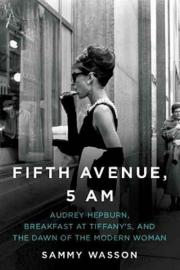 5th Avenue, 5 A.M.:
Audrey Hepburn, Breakfast at Tiffany's, and the Dawn of the Modern Woman by
Sam Wasson (Harper). This is the dramatic story of the creation of the iconic
film, which almost didn't make it to the screen, and a fascinating slice of social
and cultural history--like how Holly Golightly became
a pre-feminist role model.
5th Avenue, 5 A.M.:
Audrey Hepburn, Breakfast at Tiffany's, and the Dawn of the Modern Woman by
Sam Wasson (Harper). This is the dramatic story of the creation of the iconic
film, which almost didn't make it to the screen, and a fascinating slice of social
and cultural history--like how Holly Golightly became
a pre-feminist role model.
The Daily Show with
Jon Stewart Presents Earth (The Book): A Visitor's Guide to the Human Race by
Jon Stewart (Grand Central). A necessity for inspiring laughs in between
episodes of The Daily Show.
Kissing
Kilimanjaro: Leaving It All on Top of Africa by Daniel Dorr (Mountaineers Books). Be
careful what you say on a first date. In this engaging and colorful travelogue,
self-professed "ordinary guy" Daniel Dorr recalls his journey from a
coffee shop in California to the top of Africa's
highest peak.
My Life in France by
Julia Child with Alex Prud'Homme (Anchor, 2009). An endearing romance, vivid depictions
of life in Paris,
and luscious descriptions of food and wine make this a marvelous story. But the
most appealing aspect is Julia Child's enthusiastic sense of adventure. It was
the perfect book to read before setting out on a multi-year, cross-country road
trip (a highlight: seeing Julia's kitchen at the National Museum of American
History).
One Amazing Thing by
Chitra Banerjee Divakaruni (Voice). Nine people of varying ages and backgrounds
are trapped in an Indian consulate office after an earthquake in an unnamed
American city. A sort of modern-day version of The Canterbury Tales, they take turns sharing stories of one
amazing thing that happened in their lives. Delivered in beautiful prose and a
nail-biting storyline is the provocative idea that people are not always who
they seem to be. Nearly a year later, I'm still thinking about aspects of this
novel.
Packing for Mars: The
Curious Science of Life in the Void by Mary Roach (W.W. Norton). Roach is
an entertaining, intrepid guide as she reveals everything you want to know
about the day-to-day realities of space travel and life without gravity--and
some things you don't.
Pearl Buck in China: Journey
to the Good Earth by Hilary Spurling (Simon & Schuster). Pearl Buck's journey to writing The Good Earth was a long, tumultuous one, unfolded in this
fascinating chronicle of how she was influenced--personally and
professionally--by a time and place: rural China in the late 19th and early
20th centuries.
Reading Matters: Five
Centuries of Discovering Books by Margaret Willes (Yale University
Press). An insightful and delightful journey through the history of book buying
and selling. Intriguing historical facts and anecdotes--including a look inside
famed diarist Samuel Pepys's vast personal library complete with trendsetting, custom-made
bookshelves--make it an addictive read for book lovers.
Something Missing
by Matthew Dicks (Broadway, 2009). In this fun, clever mystery, the "bad
guy" is actually a good guy. An endearing thief with a conscience (and
obsessive-compulsive disorder), Martin Railsback steals only items that will go
unnoticed and even plays guardian angel to the homeowners he burglarizes.
Tomorrow River by Lesley Kagen (Dutton). Kagen's third
novel is as wonderful as her first two. In rural Virginia during the summer of 1968, brave,
resourceful 11-year-old Shenandoah Carmody has a mission: to find out why her
mother disappeared a year ago. Tomorrow River is great storytelling--heartbreak,
hope, sisters, secrets, suspense, and an atmospheric Southern setting.
Top 10 Books of 2010:
Robin Lenz, managing editor
The Immortal Life of
Henrietta Lacks by Rebecca Skloot (Crown). What more can I say about this
book, which has received universal praise? Skloot's stunning debut tells the
story of Henrietta Lacks, a poor, black Virginia woman who died in 1951 of
cancer at the age of 30. It's also the fascinating tale of what became of her
cells, taken without permission and developed into an incredibly useful lab
strain known as HeLa--used to develop countless valuable medical breakthroughs,
while Lacks's family remained impoverished. A detective story, a science story,
a human story.
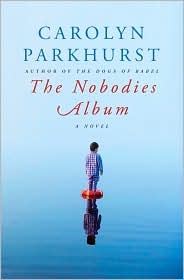 The Nobodies Album
by Carolyn Parkhurst (Doubleday) This one's also my nominee for book that
deserved more attention this year. On the surface it's a murder mystery.
It's also about the relationship between novelist Octavia Frost and her
estranged son, rock star Milo. And it's about how stories come to be, and how
they're written and re-written. Octavia is working on her eighth novel, a
series of revisions of her previous books, when she learns Milo is suspected of
murdering his fiancée. The details of their pasts and the "alternate
endings" are revealed as Olivia attempts to help Milo, revising their own
family history along the way.
The Nobodies Album
by Carolyn Parkhurst (Doubleday) This one's also my nominee for book that
deserved more attention this year. On the surface it's a murder mystery.
It's also about the relationship between novelist Octavia Frost and her
estranged son, rock star Milo. And it's about how stories come to be, and how
they're written and re-written. Octavia is working on her eighth novel, a
series of revisions of her previous books, when she learns Milo is suspected of
murdering his fiancée. The details of their pasts and the "alternate
endings" are revealed as Olivia attempts to help Milo, revising their own
family history along the way.
Packing for Mars: The Curious Science of Life
in the Void by Mary Roach (Norton). In witty, anecdote-filled
prose, Roach tackles a serious subject: the challenges of space travel. If
you've ever wondered how astronauts use the latrine in zero-G, you'll find out
here. And so much more: fascinating psychological, physical, emotional and
technical details, illuminated by Roach's entertaining curiosity.
Faithful Place by
Tana French (Viking). Detective Frank Mackey thought he'd escaped from his
dysfunctional family and Dublin's hardscrabble Faithful Place. But 22 years
later, he's drawn back when an old suitcase is discovered in an abandoned
house. It belonged to the girl Frank had expected to elope with. So she didn't
dump him--but what did happen to her? Every belief Frank has based his life on
is upended as truths are slowly revealed. Edgar Award-winner French's third
book, like her others, is unforgettable.
Salvation City by
Sigrid Nunez (Riverhead). Among the slew of post-apocalyptic books I read this
year, Nunez's quiet recounting stands out. Cole Vining, teenage son of urban
liberal atheists, is orphaned by a flu pandemic that kills millions worldwide.
He's adopted by a charismatic fundamentalist preacher and his wife, who raise
him in midwestern Salvation City. As Cole comes of age, he's trying to figure
out his place in this new world, with its new values. Gripping and all too
plausible, this book sent me running for a flu shot.
Country Driving: A
Journey Through China from Farm to Factory by Peter Hessler
(HarperCollins). In this travelogue/memoir/econ lesson, Hessler begins with an
epic road trip across China, following the Great Wall, then he lives for a
while in a mountain village. The final section focuses on a small factory town.
Through the everyday lives of individuals, Hessler gives us a fascinating
portrait of an ancient country hurtling into the 21st century, informed by his
trademark wit and insight.
Zero History by
William Gibson (Putnam). Characters we met in the earlier Pattern Recognition and Spook
Country (including former rock singer Hollis Henry) return as Gibson
explores our consumer culture's obsession with things--in this case, a brand of denim clothing called Gabriel
Hounds. This isn't science fiction, it's a thriller, and though the stakes may
not seem meaningful, Gibson's stylish tale kept me entertained, and made me
look at everyday objects with a new eye.
Kraken by China
Mieville (Del Rey). In this surreal, living London, a humongous giant squid is
stolen from a museum. As he seeks to recover the kidnapped mollusk, curator
Billy Harrow finds himself involved with cults, demons, gangsters, magic.
Though it's a bit overstuffed, Mieville's latest is a captivating, messy blend
of horror and humor.
Blackout and All Clear by Connie Willis (Bantam
Spectra). In this two-volume novel (unfortunately, published months apart),
three researchers are sent from Oxford in 2060 to World War II London. There's
not much science in this science fiction; just trust that time travel works the
way Willis says it does. Willis's tale is really about everyday people caught
up in the drama and terror of the war. From details of architecture, medical
care and department stores in the 1940s to the ways people coped
with shortages and entertained themselves in shelters during bombings, it's
clear that Willis has done her research, and she manages to convey all this
mundane information in a style that's moving and, ultimately, suspenseful.
Our Kind of Traitor by
John le Carré (Viking). Le Carré's latest is a change from his Cold War novels;
it literally begins in a sunnier place: Antigua, where a vacationing British
couple meets a Russian money-launderer over a game of tennis. Dima asks them to
deliver a message for him, and soon they find themselves caught between the
Russian mob and the British MI6. Plenty of villains, sharp pacing and great
dialogue make this timely expose of international banking one of le Carré's
best.
Top 10 Books of 2010: Amber Elbon, newsletter/web producer
The Walking Dead
(Paperbacks #1-10) by Robert Kirkman, illustrated by Tony Moore, Charlie
Adlard, Cliff Rathburn (Image Comics). I'm
not the type who usually reads books about zombies, much less recommends them.
But ever since a comic book shop owner handed me the first issue of The Walking Dead as a freebie, I've been
heading back to the store regularly for more issues. Rich with complex
characters and situations, full of gasp-inducing plot twists, it's no wonder
AMC chose to make a TV series based on these graphic novels.
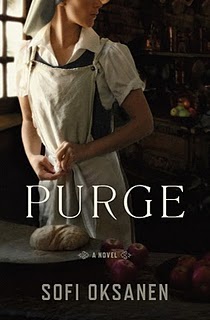 Purge by Sofi
Oksanen (Black Cat). A captivating book about two women with dark secrets and
an underlying connection. Set in Soviet-occupied Estonia, this story introduced
me to a land I knew next to nothing about. Oksanen skillfully weaves histories
together to form a rich, complex novel.
Purge by Sofi
Oksanen (Black Cat). A captivating book about two women with dark secrets and
an underlying connection. Set in Soviet-occupied Estonia, this story introduced
me to a land I knew next to nothing about. Oksanen skillfully weaves histories
together to form a rich, complex novel.
Sarah's Key by
Tatiana De Rosnay (St. Martin's) It is easy to forget sometimes that World War
II is not so long ago or so far away. This story reminds us how close those
events are to all of us. An American in Paris uncovers a secret from war time
that hits close to her heart and home, beginning a journey of discovery and
healing. The ending of this book is particularly satisfying.
A Reliable Wife by
Robert Goolrick (Algonquin). When Ralph Truitt placed an ad for "a
reliable wife" in the newspaper, he likely wasn't expecting love, but he
probably wasn't expecting to marry a woman who would slowly poison him either.
Alas, he got a bit of both. A fascinating book that completely surprised me.
The Particular Sadness
of Lemon Cake by Aimee Bender (Doubleday). For young Rose, food and her
family are never the same after she discovers that she can taste emotions. Her
mystical palate provides her with insight into the inner lives of others, which
she must make sense of as she grows into adulthood. A charming concept and
earnest coming-of-age tale.
The Hunger Games, Catching Fire, Mockingjay by Suzanne Collins (Scholastic) I read all three shortly
after Mockingjay came out, and for anyone
new to the series, I recommend planning on reading them together. They are
thoroughly entertaining and guaranteed to win you "cool" points with
teenagers.
The Story of Stuff
by Annie Leonard with Ariane Conrad (Free Press). The message that society must
end the glorification of consumerism and growth for its own sake is
increasingly prevalent. Unfortunately much of it is received as nothing but
liberal fearmongering. Leonard mixes her facts with first-hand accounts and
line-drawn illustrations to deliver her message in a friendly and enlightening
way, without finger-pointing at the reader.
Salvation City by
Sigrid Nunez (Riverhead). This coming-of-age story is complicated by an
international flu pandemic that orphans the protagonist. Suddenly placed in an
evangelical Christian home after being raised by atheist parents hostile toward
religion, Cole must make sense of the changes to his life, family and the
world, while struggling to find his place in it.
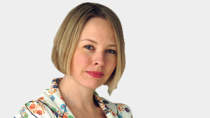 relationship is depressing. It's like saying, 'Here's 150 Amazon dollars. That's how much I love you. Please adjust to reflect my portion of the mortgage payment.' "
relationship is depressing. It's like saying, 'Here's 150 Amazon dollars. That's how much I love you. Please adjust to reflect my portion of the mortgage payment.' "


SHELFAWARENESS.1222.S1.BESTADSWEBINAR.gif)


SHELFAWARENESS.1222.T1.BESTADSWEBINAR.gif)
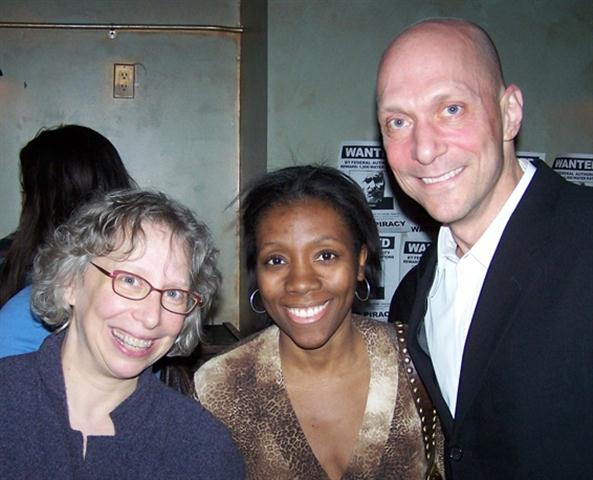 More than 200 people attended a launch party last week for The Water
Wars by Cameron Stracher (Sourcebooks Fire), at 200 Orchard in New York
City. Among the crowd cheering on the new YA dystopian novel: (l. to r.)
Lisa Von Drasek, children's librarian at the Bank Street
More than 200 people attended a launch party last week for The Water
Wars by Cameron Stracher (Sourcebooks Fire), at 200 Orchard in New York
City. Among the crowd cheering on the new YA dystopian novel: (l. to r.)
Lisa Von Drasek, children's librarian at the Bank Street 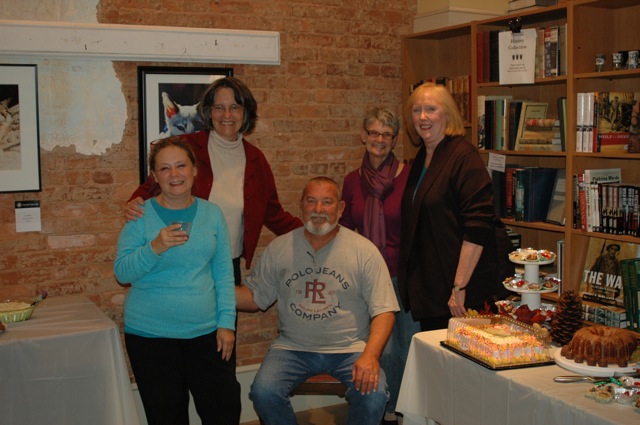 What's the best birthday gift an indie bookstore could receive? On December 4, the community of Zebulon, Ga. (pop. 1,200) threw a surprise fourth birthday party for Chris Curry, Susan Formby and Karen Lacey, co-owners of
What's the best birthday gift an indie bookstore could receive? On December 4, the community of Zebulon, Ga. (pop. 1,200) threw a surprise fourth birthday party for Chris Curry, Susan Formby and Karen Lacey, co-owners of 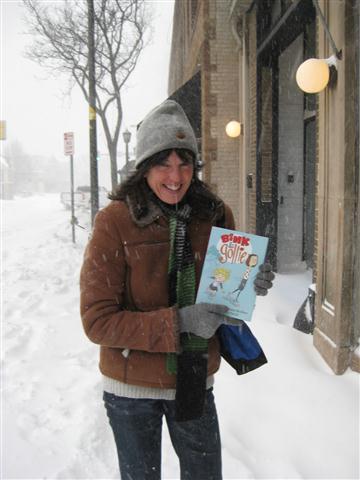 The weekend blizzard that snowed in the Midwest resulted in numerous business closures and event cancellations, but indie booksellers persevered.
The weekend blizzard that snowed in the Midwest resulted in numerous business closures and event cancellations, but indie booksellers persevered. 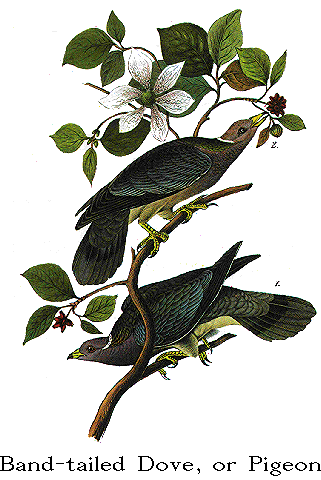 In his
In his 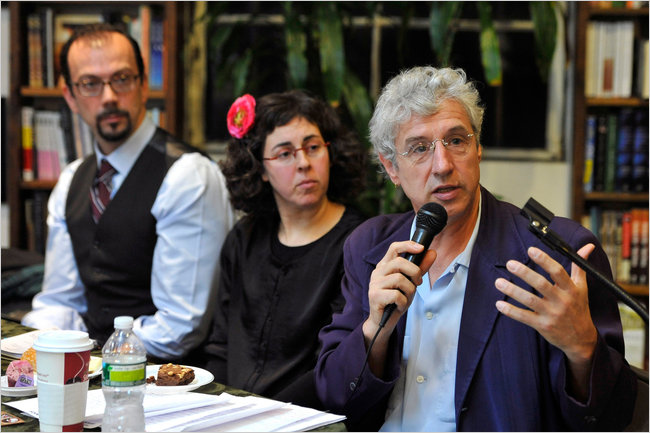 The
The 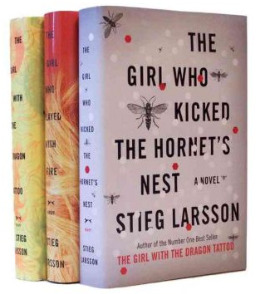
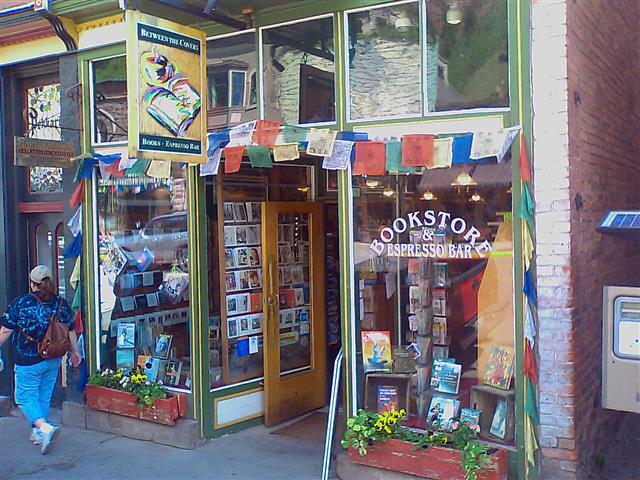
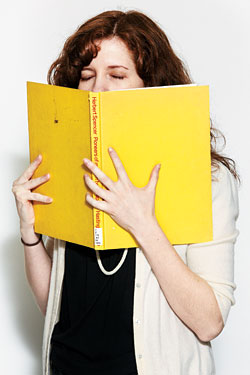 Number 16 among New York magazine's
Number 16 among New York magazine's  What does Sarah read? The
What does Sarah read? The  BBC Four released a
BBC Four released a  5th Avenue, 5 A.M.:
Audrey Hepburn, Breakfast at Tiffany's, and the Dawn of the Modern Woman by
Sam Wasson (Harper). This is the dramatic story of the creation of the iconic
film, which almost didn't make it to the screen, and a fascinating slice of social
and cultural history--like how Holly Golightly became
a pre-feminist role model.
5th Avenue, 5 A.M.:
Audrey Hepburn, Breakfast at Tiffany's, and the Dawn of the Modern Woman by
Sam Wasson (Harper). This is the dramatic story of the creation of the iconic
film, which almost didn't make it to the screen, and a fascinating slice of social
and cultural history--like how Holly Golightly became
a pre-feminist role model. Purge by Sofi
Oksanen (Black Cat). A captivating book about two women with dark secrets and
an underlying connection. Set in Soviet-occupied Estonia, this story introduced
me to a land I knew next to nothing about. Oksanen skillfully weaves histories
together to form a rich, complex novel.
Purge by Sofi
Oksanen (Black Cat). A captivating book about two women with dark secrets and
an underlying connection. Set in Soviet-occupied Estonia, this story introduced
me to a land I knew next to nothing about. Oksanen skillfully weaves histories
together to form a rich, complex novel.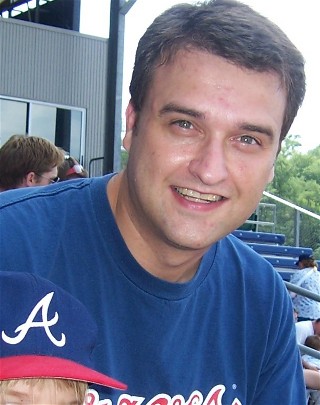 Just in time for salary
negotiations, free agents and nail-biting waits for trades comes Hot Stove Economics: Understanding
Baseball's Second Season by J.C. Bradbury
(Springer, $24.95, 9781441962683/1441962689, October 2010). The Yankees want Cliff Lee
for $161 million, Carl Crawford got $142 million, and the hot stove continues
to heat up. And is Derek Jeter really worth what the Yankees will pay him? As baseball
fans longg for spring to start, J.C. Bradbury's book explains what baseball
players are really worth and why. He took some time from analyzing data like
revenue growth and players' birth months to answer a few questions about pay
and play.
Just in time for salary
negotiations, free agents and nail-biting waits for trades comes Hot Stove Economics: Understanding
Baseball's Second Season by J.C. Bradbury
(Springer, $24.95, 9781441962683/1441962689, October 2010). The Yankees want Cliff Lee
for $161 million, Carl Crawford got $142 million, and the hot stove continues
to heat up. And is Derek Jeter really worth what the Yankees will pay him? As baseball
fans longg for spring to start, J.C. Bradbury's book explains what baseball
players are really worth and why. He took some time from analyzing data like
revenue growth and players' birth months to answer a few questions about pay
and play.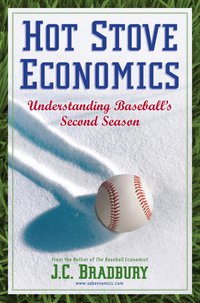 Who is overpaid and
who deserves a raise, and why are contract terms are just as important as
playing ability?
Who is overpaid and
who deserves a raise, and why are contract terms are just as important as
playing ability?